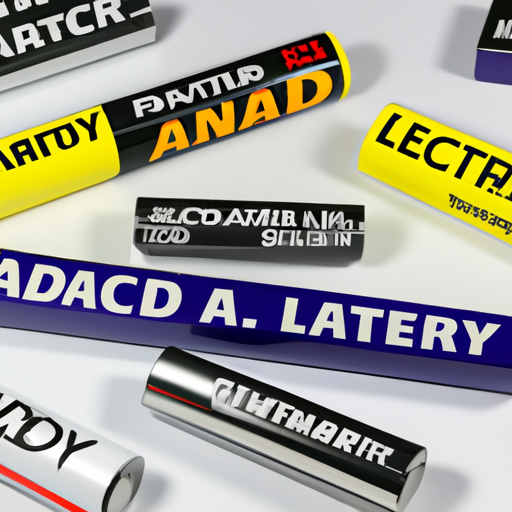The battle between lithium batteries and lead-acid batteries has been ongoing for years, with each technology having its own set of advantages and disadvantages. Both types of batteries are widely used in various industries, and each has its own set of important patents that have helped to shape the development of the technology.

Another important patent related to lithium batteries is US Patent 7,078,128, which was granted to Panasonic Corporation in 2006. This patent covers a lithium-ion battery with improved thermal stability, making it safer to use in a wide range of applications. These patents have helped to drive the development of lithium battery technology and have played a key role in the widespread adoption of these batteries in various industries.
On the other hand, lead-acid batteries have been around for much longer and are still widely used in industries such as automotive, telecommunications, and backup power systems. Lead-acid batteries are known for their low cost and reliability, making them a popular choice for applications where cost is a key factor. One of the key patents related to lead-acid batteries is US Patent 4,414,302, which was granted to Johnson Controls in 1983. This patent covers a lead-acid battery with improved performance and cycle life, making it a key technology in the development of lead-acid battery technology.
Another important patent related to lead-acid batteries is US Patent 5,089,498, which was granted to Exide Technologies in 1992. This patent covers a lead-acid battery with improved charging efficiency, making it more efficient and cost-effective to use in a wide range of applications. These patents have helped to drive the development of lead-acid battery technology and have played a key role in the continued use of these batteries in various industries.
In conclusion, both lithium batteries and lead-acid batteries have their own set of important patents that have helped to shape the development of the technology. While lithium batteries are known for their high energy density and fast charging capabilities, lead-acid batteries are valued for their low cost and reliability. As technology continues to evolve, it will be interesting to see how these two technologies continue to compete and innovate in the future.
The battle between lithium batteries and lead-acid batteries has been ongoing for years, with each technology having its own set of advantages and disadvantages. Both types of batteries are widely used in various industries, and each has its own set of important patents that have helped to shape the development of the technology.

Another important patent related to lithium batteries is US Patent 7,078,128, which was granted to Panasonic Corporation in 2006. This patent covers a lithium-ion battery with improved thermal stability, making it safer to use in a wide range of applications. These patents have helped to drive the development of lithium battery technology and have played a key role in the widespread adoption of these batteries in various industries.
On the other hand, lead-acid batteries have been around for much longer and are still widely used in industries such as automotive, telecommunications, and backup power systems. Lead-acid batteries are known for their low cost and reliability, making them a popular choice for applications where cost is a key factor. One of the key patents related to lead-acid batteries is US Patent 4,414,302, which was granted to Johnson Controls in 1983. This patent covers a lead-acid battery with improved performance and cycle life, making it a key technology in the development of lead-acid battery technology.
Another important patent related to lead-acid batteries is US Patent 5,089,498, which was granted to Exide Technologies in 1992. This patent covers a lead-acid battery with improved charging efficiency, making it more efficient and cost-effective to use in a wide range of applications. These patents have helped to drive the development of lead-acid battery technology and have played a key role in the continued use of these batteries in various industries.
In conclusion, both lithium batteries and lead-acid batteries have their own set of important patents that have helped to shape the development of the technology. While lithium batteries are known for their high energy density and fast charging capabilities, lead-acid batteries are valued for their low cost and reliability. As technology continues to evolve, it will be interesting to see how these two technologies continue to compete and innovate in the future.